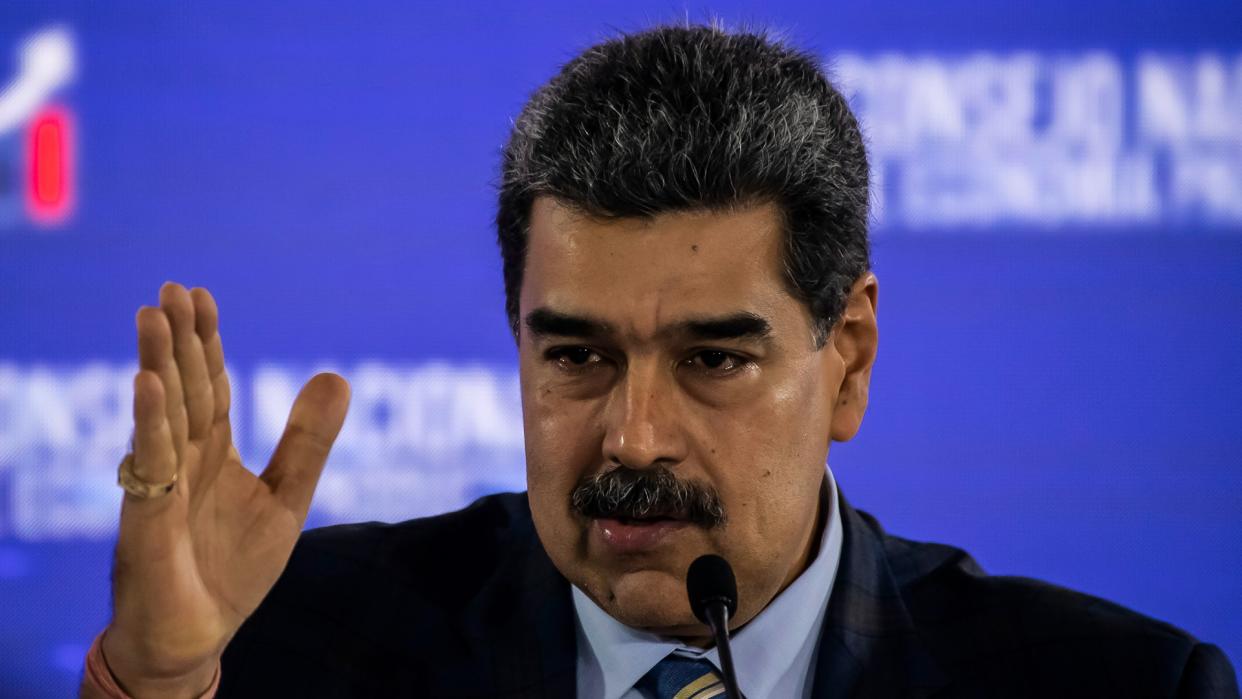How US sanctions relief could revitalise Venezuela

- Oops!Something went wrong.Please try again later.
Venezuela may be coming in from the diplomatic cold as the US is considering easing long-standing sanctions on its oil in exchange for holding free and fair elections in the country for the first time since 2013.
The Biden administration and President Nicolás Maduro are expected to announce a "breakthrough" agreement on the sanctions in the coming days, said The Times.
It coincides with the promise of a return to democracy in the beleaguered Latin American country. The government and the US-backed opposition agreed on Tuesday at mediated talks in Barbados to hold presidential elections later next year, according to The Washington Post. The deal "would be the most significant progress in Venezuela's political stalemate in years". In response, Washington has agreed to lift some sanctions, which could allow PDVSA, the state oil company, to resume trading with the US and other countries.
The US has long promised to lift some of its sanctions on Venezuela "in exchange for democratic concessions" from Maduro, reported Reuters. On Sunday, for the first time since Maduro came to power in 2013, opposition coalition the Unitary Platform will hold a primary to choose its candidate, which could be "a chance for the opposition to rally support from voters in Venezuela, whose economy has been in deep crisis for years".
What are the oil sanctions?
Venezuela "boasts the largest proven oil reserves on the planet", said the Financial Times, and "in its heyday pumped about 3mn barrels a day". In 2016, oil accounted for 95% of the country's exports. However, the US-led sanctions and "years of mismanagement" has left production below 1 million barrels a day.
US sanctions on the country's oil production were significantly tightened after the Venezuelan presidential elections of 2018. Maduro claimed to have won a second term in an overwhelming victory, which was widely viewed as "fraudulent" by the US, EU and the Venezuelan opposition, said the FT. In the run-up to the election, opposition leaders had been barred from running and international observers were denied access.
Since then Venezuela has suffered "hyperinflation, rolling blackouts, food shortages and the exodus of more than 7 million citizens" – more than a quarter of the population, many of whom headed to the US.
After Maduro was inaugurated in 2019, the UK and the Trump administration in the US "refused to recognise the legitimacy of his rule", said The Times, "and labelled him a dictator". The US sanctioned the state oil company, the central bank and dozens of officials, including Maduro and his wife, Cilia Flores.
What has changed?
These agreements represent "a dramatic shift in US foreign policy in Venezuela", said The Washington Post, after long-term pressure "failed to bring solutions to the country's crisis".
Talks between the two administrations began last year during Russia's invasion of Ukraine, as the US "sought to drive a wedge between Venezuela and its close ally, Russia".
"That changed the calculus, not just in terms of energy, which is an important element, but the fact that it's 2023, not 1993," said Caleb McCarry, a senior staff member on the Senate Foreign Relations Committee. "We're living in a different world."
Last year, the US began to ease sanctions on Chevron, its main oil company with assets in Venezuela, and announced that it would resume direct deportation flights to Venezuela, "another sign of thawing relations between the two countries", said the paper. "The strained relationship had limited the United States' ability to return undocumented Venezuelan migrants."
What next?
Maduro is "widely expected" to run again next year, said the FT. But it is unclear what would happen if María Corina Machado, the opposition frontrunner, were to win the nomination.
She has been banned from holding public office since June because she supported the US sanctions on Maduro. Venezuela's opposition claims the government uses these bans "unlawfully to prevent them from competing in elections", said Reuters, and the US has condemned the ban. But in a joint statement, the government and opposition agreed that "each side can choose its candidate according to its own internal rules".
The US will likely "put a time limit on any sanctions relief", said The Washington Post, "so that it could be reversed if Maduro didn't comply with his end of the deal".
"This is not going to be a magical overnight solution," Geoff Ramsey, a senior fellow at the Atlantic Council, told the paper. "Now the hard part begins."

